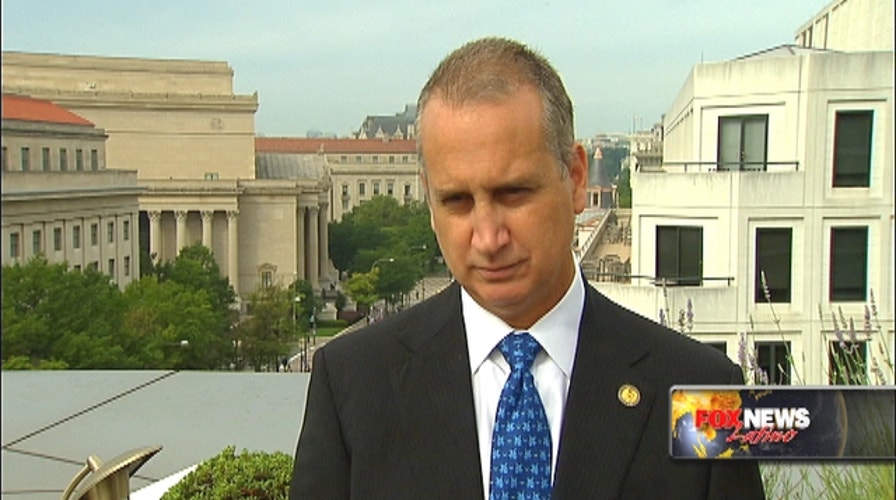U.S. Rep. Mario Diaz-Balart, who has led Republican efforts in the House of Representatives to craft an immigration reform bill, says the next viable window for the measure to pass is early next year.
If that doesn’t happen, said Diaz-Balart, a Florida Republican, then immigration reform will continue to be elusive indefinitely.
“I’m hoping we can do it early next Congress,” Diaz-Balart said in an interview with Fox News Latino.
In 2015, the political focus will shift to the 2016 presidential election, and to announcements by those who plan to run, as well as to speculation about who may enter the race.
“If we don’t do it early next Congress, it just gets more difficult," Diaz-Balart said.
Diaz-Balart was visibly frustrated in the summer after the House GOP leadership told him they would not consider his bill this year.
The congressman had worked on crafting a bill that could win bipartisan support, including a path to legal status for millions of undocumented immigrants, but also stricter enforcement at the border as well as the interior of the country.
After getting word that his bill was, in essence, dead for this year, Diaz-Balart held a press conference expressing disappointment in both parties.
But Diaz-Balart says he is remaining loyal to efforts to reform immigration, and determined to forge ahead to get a measure passed in Congress that can stand up to any resistance by the Obama administration – or others in the future – not to abide by parts of the law, particularly those addressing enforcement.
Part of the challenge of coming up with a measure that would have a real shot at passage, he said, was addressing the lack of trust many in his party have in President Obama’s commitment to enforcement.
His goal, he said, was “to come up with a version that finally secures the borders, that does so even if you have a president that frankly not a lot of people trust in enforcing the law.”
He and others, including Democrat Luis Gutierrez of Illinois, who assisted in crafting the measure made sure to include “accountability,” Diaz-Balart said.
“So you can force this or future administrations to enforce border and interior security aspects,” he said. “This legislation does that.”
Last year, the Senate passed a bipartisan comprehensive immigration reform bill that tightened border security, expanded guest worker visas, and provided a path to legal status for undocumented immigrants who meet a strict set of criteria.
But the effort stalled in the House, where a faction of conservative Republicans – who have the majority in the chamber – said they would never support a measure that gave a break to undocumented immigrants.
That, they said, amounted to rewarding law-breakers.
Diaz-Balart said one key flaw in the Senate version is that it did not address accountability – making sure that whatever administration is in power abides by it.
Diaz-Balart has long maintained that rounding up and deporting the estimated 11 million undocumented immigrants in the United States is unrealistic.
The immigration system, he said, is “absolutely broken.”
“It’s not working for our national security interests,” he said. “We don’t know who comes in and who leaves. We don’t control who comes in and who leaves, and that’s not acceptable.”
“But furthermore it’s also hurting our economic interests,” he added, “so I’m committed to continuing to work to fix an immigration system that everyone understands is broken – fix it for our national security interests but also fix it for our economic interests.”
It wouldn’t be amnesty, Diaz-Balart said, but an earned legal status that would be fair to the many other immigrants who have come to the United States legally.
President Obama has vowed to take executive action on immigration after the elections, citing the failure of Congress to pass a measure. Originally, Obama had said he would make such a move – which would include providing at least temporary relief from deportation for millions of undocumented immigrants – in September, but then postponed it after some Democrats facing re-election in November worried that it would hurt them.
Diaz-Balart expressed skepticism that the president will take executive action.
“The president has drawn a red line once again, but he himself has violated his own red line,” the congressman said. “The president first said he was going to do immigration reform his first year – he broke his word.”
And various other times, he said, Obama said he would act unilaterally and did not do so.
“Now he’s saying after the elections,” said Diaz-Balart. “He’s had ample opportunity to get it done. The reality is President Obama only thinks of immigration reform in election season.”





